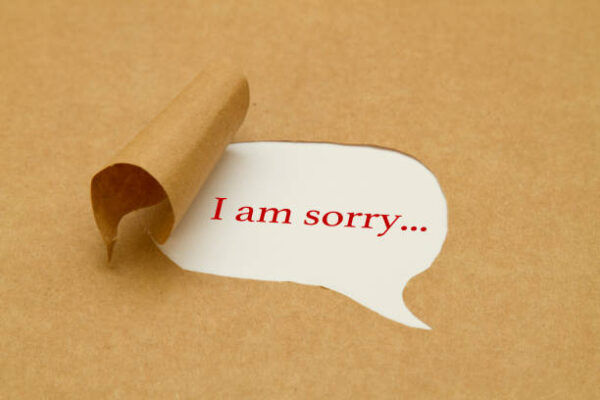There are many incidents like you forget your best friend’s birthday. You might have gone a hour late for a dinner with your colleagues. You submit your project a day after the deadline.You borrow other’s things and could not return it on time. This list could go on.
Yes, we are all slip every now and then. Even the most organised and diligent person will slip once in a while. As mistakes are an endemic part of life, dealing with them with grace and candour can make a huge difference in how our blunders affect our relationships with people. Owning up to our errors is the first step towards developing civil and courteous communication.
Timing it Right
Writer Jacoba Urist cites the work of psychologists who advise that timing is crucial in delivering an apology. It’s better to wait until the offended party has had time to process the hurt and vented their anger at you. If you say sorry too early, you may deprive the person of working through their tumultuous emotions. On the other hand, saying sorry after a protracted delay may indicate apathy instead of your being contrite. Of course, the right timing will vary according to circumstances, but it is something for you to keep in mind.
The effectness of apology are six key ingredients to saying sorry. Besides expressing regret and explaining what went wrong, the offender has to take responsibility for his or her mistake. The most important matter is the acknowledgment of your fault. That is the Depression of self and the proof of not taking part of an empty talk.
We have thousands of ways to express our apology in this digital age. Sending an SMS to a Facebook post, making a call or shooting an email.
MIT Professor Sherry Turkle writes in her book Reclaiming Conversation that apologising can indeed be an unpleasant or uncomfortable experience as we have to contend with the offended person’s anger or grief. However, she argues that it is “this realisation that triggers the beginning of forgiveness.” We have to be willing to undergo discomfiture if we are truly penitent. When we say sorry through a text message, we are short-changing the person whom we have wronged, as neither party can witness the other’s emotions unfold in real time.
In a blog published in Huffington Post, ethicist, Bruce Weinstein, reminds us that “a meaningful apology is a sign of integrity, not weakness.” So, don’t shy away from accepting, acknowledging and apologising for your misdeeds, whether slight or grave.



